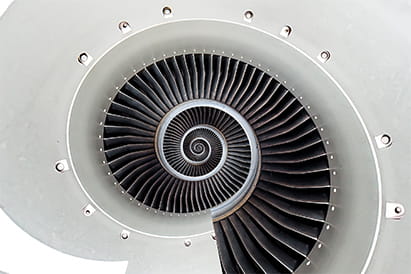Aircraft Repossession Under the Cape Town Convention in the United Arab Emirates
 Let us face this: aircrafts are expensive, and we always tend to lease expensive assets with a depreciated value as opposed to purchasing the same. Therefore, one could safely say that aircraft leasing is one of the most significant elements in the aviation industry. Since securities, title retention agreements, and lease agreements are approached differently by different legal systems in the world, the lessors and the financial institutions that provide loans for the aircraft are left with uncertainty regarding the enforceability of their rights. This leads to difficulty in financing aviation assets and often includes a high cost of borrowing. However, a country where the rights and remedies are clearly defined under a sophisticated jurisdiction and are a party to international treaties; it provides a double-sided advantage to both the lessee-operator and the creditors or lessors:
Let us face this: aircrafts are expensive, and we always tend to lease expensive assets with a depreciated value as opposed to purchasing the same. Therefore, one could safely say that aircraft leasing is one of the most significant elements in the aviation industry. Since securities, title retention agreements, and lease agreements are approached differently by different legal systems in the world, the lessors and the financial institutions that provide loans for the aircraft are left with uncertainty regarding the enforceability of their rights. This leads to difficulty in financing aviation assets and often includes a high cost of borrowing. However, a country where the rights and remedies are clearly defined under a sophisticated jurisdiction and are a party to international treaties; it provides a double-sided advantage to both the lessee-operator and the creditors or lessors:
- If the lessors or creditors have a defined right and remedies to recover the aircraft in the event of a continued default by the lessee-operator, it will assist in the prediction and planning the provisions of finance.
- The lessor airlines benefitting from the reduction of risk in aircraft financing, are able to obtain financing or lease aircraft at much lower rates and save costs, as well as, grow its fleet size.
The Cape Town Convention
Before the Cape Town Convention, the Geneva Convention on the International Recognition of Rights in Aircraft of 1948, assisted in developing an international system, recognizing the rights in aircraft, protecting the property interest, consensual liens, and mortgages and defined the orders of priority. However, there were certain pitfalls because there was no international system in place to protect the lessors who were unable to repossess their aircraft after a continuous failure by the lessee to pay the lease rent since the legal provisions for this regard was inadequate in the relevant country where the aircraft was based. Thus, a general demand arose for a uniform system regarding the protection of international interests in aircraft.
As a result, on 16 November 2001, the Convention on International Interests in Mobile Equipment was concluded along with the Protocol on Matters Specific to Aircraft Equipment in Cape Town, which together formed the Cape Town Convention. The Convention primarily addressed the above-explained problem, especially with regard to the rights to high-value aviation assets, namely the aircraft engines, airframes, and helicopters which, because of their nature, have no fixed location. The terms of the Convention and its remedies applied along with generally accepted principles of international law are to be exercised in conformity with the local procedural law.
This Convention helped reduce the risk of aircraft financing and leasing transactions by:
- Providing clear time-bound remedies relating to repossession of aircraft and engines;
- Permitting the creditor to offset unpaid contractual obligations by immediately repossessing and selling or redeploying the concerned aircraft or engines; and
- Regulations on protecting and preserving the value of such aircraft or engine, pending such sale or redeployment. The Convention recognizes that aircraft assets are highly valued, which rapidly deteriorate, requiring constant care and maintenance to protect their collateral value.
Overview of the Convention
The Cape Town Convention superseded the Geneva Convention with regard to aircraft and the Rome Convention for the Unification of Certain Rules Relating to the Precautionary Attachment of Aircraft 1933.
The Convention acts a multi-equipment treaty with protocols on aircraft equipment, railway rolling stock and space assets; however, only the Aircraft Protocol has been adopted so far. The said Protocol applies to airframes, aircraft engines, and helicopters which
- carry at least goods in excess of 2750 kgs or more than eight passengers;
- aircraft with 1750lb of thrust in case it is jet-powered or 550 HP of turbine power; and
- helicopters carrying over five passengers.
The main aim is to reduce the cost of finance for high-value mobile assets such as aircraft that cross international borders regularly.
Main Mechanism
- Provides for the creating of ‘international interests’ in likes of a mortgage or an aircraft finance lease capable of being recognized in all contracting states;
- Provide remedies internationally available to the creditors in the event of default by an airline or operator with regard to repayments;
- Also creates an additional electronic international register for the registration of the international interests;
- Under Article 13 of the Convention, the mechanism to make an application to the court and the lessor’s right to request relief from the court originates from the aviation lease documentation which contains the contractual agreement between the lessee and the lessor, agreed in accordance with Article IX of the Protocol, that the provisions of the Convention and the Aircraft Protocol shall apply.
What is International Interest?
International interest is essentially an interest in separately identifiable aircraft objects and extends to the proceeds of the said aircraft or object. It may be:
- Granted under a security agreement by the charger, or by the seller in a sale agreement;
- Vested with the lessor under the leasing agreement;
- Vested in the conditional seller by the title reservation agreement; or
- Held by an assignee.
In order to be constituted as International Interest, the instrument creating or providing such interest must:
- Be in writing;
- Relate to an object over which the charger, lessor or conditional seller has the power of disposal;
- Must enable the identification of the object in accordance with the Convention;
- In the case of security agreements, the secured obligations must be determined; however, there is no need to state the sum secured.
Remedies
Under the Cape Town Convention and the Aircraft Protocol, following the event of default by the airline or the lessee-operator, the lessor or the creditor has the following remedies:
Remedies under the Convention
- Take possession or control of an aircraft or part;
- Receive profits or income arising from the management or use of the aircraft;
- Sell or grant a lease of the aircraft or part;
- Vest an object in satisfaction or redemption;
- Interim reliefs pending final determination of a claim;
- The right to require the aircraft to be removed from the national civil aircraft register; and
- The ability to export the concerned aircraft.
Remedies under the Aircraft Protocol
Under Article IX of the Protocol, the remedies under Articles 8 to 15 of the Convention are expanded to include deregistration, export and physical transfer of the aircraft from its current territory accompanied by the subsequent re-registration of the concerned aircraft.
 Cape Town Convention in the UAE
Cape Town Convention in the UAE
The United Arab Emirates ratified the Cape Town Convention which came into effect in UAE on 1 August 2009. This has benefitted the lessors and financiers to reduce their risk and the cost of credit supply, since the leasing and finance structures drafted in UAE has incorporated the rights and remedies provided under the Convention
The UAE, when ratifying the Cape Town Convention, made the following Declarations with regard to the provisions of the Convention:
- Cases with regard to the payments or repossession of an aircraft, arising within the jurisdiction of the UAE Courts necessitate applications to the Court to enforce any remedies provided under the Convention, including the self-help remedies granted to the lessors.
- UAE recognizes the validity of International Interests registered with the International Register. No subsequent filing, registration, government approval or submissions are necessary to ensure the protection of the parties’ rights or interests provided under the Cape Town Convention. These interests are also enforceable against third parties in the UAE.
General Civil Aviation Authority (GCAA) and the Civil Aviation Law
The GCAA recognizes the validity of IDERA. IDERA or the Irrevocable Deregistration and Export Power of Attorney allows the person in favour of whom the document is issued to exercise the rights and remedies contemplated by the Convention.
In accordance with the provisions of Article 28 (2) of the Civil Aviation Law (Federal Law Number (20) of 1991), the GCAA maintains a national aircraft register. Article 5(2) of the Civil Aviation law requires the aircraft to be on the aircraft registers in order to be legally disposed of without the prior written consent from the GCAA.
When the aviation finance lease is terminated, and the IDERA is filed with the international register, the party in whose favour the document is created will, subject to an application to the court, have the right to:
- Repossess the aircraft;
- De-register the aircraft from the GCAA aircraft register and the international register
- To export the aircraft from UAE without any further consents, licenses or approvals from the GCCA.
General Repossession Procedure in the UAE
Though an application for an order of repossession of an aircraft is rare, in contractual disputes in the UAE, it is common for a creditor to issue an ex-parte application in the UAE Courts, requesting the Courts to attach the assets of the defaulting parties in contractual disputes. In the event of default by the airline or the aircraft operator to fulfil his obligations, the creditor or the lessor can take recourse to the UAE Courts in the same manner as in other contractual disputes.
Under the UAE Civil Code (Federal Law Number (11) of 1992), a plaintiff with a valid claim against a defendant, like a creditor or owner of an asset, is allowed to request the attachment of an object in possession of another.
That is, in the event of a dispute over the possession of the aircraft, the lessor may file retrieval proceedings for the attachment and physical retrieval of the aircraft through Court under whose jurisdiction the disputed aircraft is situated. The basic procedure for an attachment entails filing an ex-parte application to the duty judge, who then makes a prompt decision on the merits of the proposed attachment and grants an order based solely upon the documents provided. The proceedings do not involve any affidavits or witnesses, and if successful, an attachment order granted by the judge is sent by the court bailiff for the execution of the same.
Within eight days from the date of filing a successful attachment proceeding, the lessor will also be required to file a substantive action before the competent court. This usually entails the process of the lessor, proving that he has the actual ownership of the aircraft which is currently in possession of another party. If the lessor fails to file a substantive action within the specified time, the attachment order will be considered void.
The matter will then be litigated till resolved with a final and conclusive judgement by the Court, ordering the return of possession of the aircraft to the lessor. Where all the appeal stages are exhausted, and the lessor has a judgement in his favour, he can proceed with the execution of the said judgement through the relevant execution department of the Court.
As seen above, retrieval proceedings under the UAE Civil Code are time-consuming and can take years for an executable judgement to be rendered and be enforced.
Conclusion
 The Cape Town Convention primarily aims at creating an environment for the airlines to grow and increase its fleet size. The Convention provides certainty to the rights and obligations of parties, protects the international interests, and enables the reduction of risk and the cost of obtaining financial assistance for high-value assets like aircraft. The UAE airline industry, with its abundant growth, utilizing aircraft financing is a prime example of the benefits that can be reaped by following the guidelines and provisions of the Convention. Even in the event of a dispute, the lessor has the protection of the UAE jurisdiction, which will grant the necessary orders and remedies where applicable, thus protecting the rights of the parties.
The Cape Town Convention primarily aims at creating an environment for the airlines to grow and increase its fleet size. The Convention provides certainty to the rights and obligations of parties, protects the international interests, and enables the reduction of risk and the cost of obtaining financial assistance for high-value assets like aircraft. The UAE airline industry, with its abundant growth, utilizing aircraft financing is a prime example of the benefits that can be reaped by following the guidelines and provisions of the Convention. Even in the event of a dispute, the lessor has the protection of the UAE jurisdiction, which will grant the necessary orders and remedies where applicable, thus protecting the rights of the parties.
 English
English
 عربي
عربي Русский
Русский 官话
官话 português
português
 Türk
Türk 

















